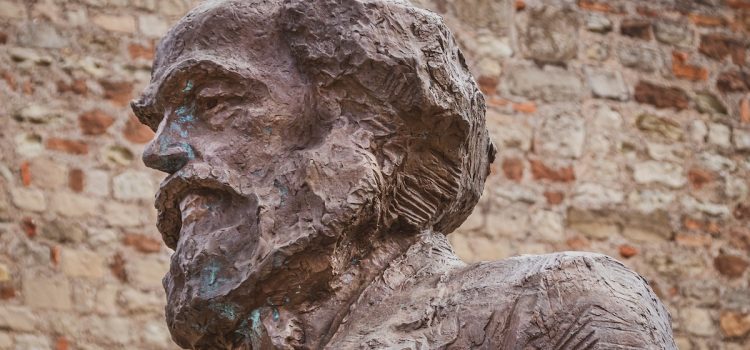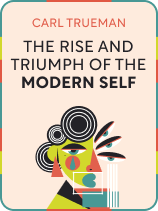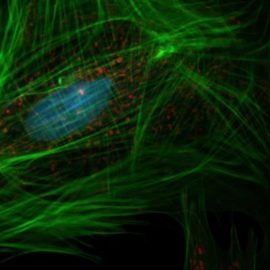

This article is an excerpt from the Shortform book guide to "The Rise and Triumph of the Modern Self" by Carl Trueman. Shortform has the world's best summaries and analyses of books you should be reading.
Like this article? Sign up for a free trial here.
What do the ideas of Marx and Freud have in common? How did they help form the modern conception of the self?
Carl Trueman argues that cultural developments of the past three centuries have transformed our conception of selfhood from a self rooted in religion, tradition, and community to one rooted in individualism, emotion, and sexuality. The ideas of Marx and Freud contributed to this transformation.
Read more to learn about the roots and the emergence of Freudian Marxism from Trueman’s perspective.
The Roots of Freudian Marxism
We’ll go over Trueman’s assessment of Marxist philosophy about self and Freud’s theory of sexuality as the center of identity. Then, we’ll see how the ideas of these two men were joined together in the 20th century as Freudian Marxism.
Karl Marx’s Political Selfhood
Trueman asserts that Karl Marx undermined the Christian idea of a universal human nature by placing greater importance on political and economic relationships. A 19th-century German philosopher, Marx proposed radical economic theories that are known today as the foundations of communism.
Marx believed that the upper and lower economic classes exist in a constant power struggle with each other, one in which the lower classes have the moral high ground because they’re economically oppressed. According to this view, the morality or immorality of any human action is determined by which class’s interests are served. This means that the most important thing to understand about a person was neither their inner life nor their moral life, but where they stood in a socioeconomic hierarchy.
This view runs contrary to the traditional Christian idea that humans have a universal nature that exists prior to their political and economic relationships with one another. It also downgrades the importance of divine law in evaluating morality.
Sigmund Freud’s Theory of Sexual Psychology
The theories of prominent 19th-century psychologist Sigmund Freud brought sexuality to the very center of human identity. Freud posited that sexual impulses form much of the foundation of the unconscious mind. Trueman explains that by placing sexuality at the center of identity, Freud further eroded the authority to restrict sexual behavior. Recall that, according to the modern self, a good life is one where people are able to fulfill their authentic desires. Therefore, if sexuality is at the very center of psychology, then a good life will be one in which sexual desires are fulfilled.
Trueman highlights two areas where Freud’s theories posit sexuality as the center of identity.
1) Genital pleasure: According to Trueman’s analysis, Freud placed sexuality at the core of identity by describing genital pleasure as the psychological blueprint on which all other forms of happiness and satisfaction are modeled. The human mind innately understands sexual pleasure, and therefore other activities are only pleasurable if they provide a psychologically similar experience.
This led Freud to argue that sexual repression was the source of most psychological unhappiness. He saw the restriction of sexuality as a defining feature of civilization and reasoned, therefore, that unhappiness stems from participation in society. This fits neatly with Rousseau’s moral philosophy that society was a source of moral corruption.
2) Sexualizing children: Trueman also states that Freud placed sexuality at the core of human identity by viewing children as inherently sexual. Freud maintained that problems of sexual repression began in early childhood and stemmed from a child’s relationship with their parents. Freudian psychology also sought to reframe childhood masturbation as a medical rather than moral concern. According to this view, children don’t become sexual beings as they enter puberty—they’re always sexual.
The Emergence of Freudian Marxism
Trueman explains that, after Freud made identity sexual, 20th-century academics fused Freudian ideas about sexual repression with Marxist notions of class struggle. Marx saw society as a struggle between an economic elite and an exploited working class. Freudian Marxists added another layer, arguing that economic elites also maintained their power through psychological domination. Therefore, Freudian Marxists sought to identify and overturn this domination. While previous generations of Marxists had focused their attention on property laws and labor contracts, Freudian Marxists focused on how the oppressed classes felt.
Freud posited sexual restriction as a defining feature of civilization. Freudian Marxists began to view sexual restrictions as a form of class domination. In particular, they viewed the traditional patriarchal family as a source of oppression. They argued that traditional families taught people to be obedient to their fathers, which led them to be submissive to economic and political elites. Therefore, to overthrow the oppressive elites, you must first overthrow the traditional family.
| Eros and Freudian Marxism In making sense of how thinkers and activists synthesize Freudian and Marxist ideas, we must understand Freud’s concept of Eros. Freud posited that all human behavior was motivated by one of two drives, Eros or Thanatos. Named for the Greek god of love, Eros was a drive that included sexuality, affection, and survival. Eros is the primary motivation of human behavior, and therefore, the primary source of satisfaction in life. He contrasted this with Thanatos, named after the Greek god of death, a drive toward destruction, death, and violence. Since Freud posited that maintaining civilization required the suppression of Eros, utopian thinkers like Herbert Marcuse began to argue for a society where people would be free to follow their Eros without inhibition. This led to calls to seek out and overthrow sources of oppression that Trueman highlights as the major contributions of Freudian Marxism. |

———End of Preview———
Like what you just read? Read the rest of the world's best book summary and analysis of Carl Trueman's "The Rise and Triumph of the Modern Self" at Shortform.
Here's what you'll find in our full The Rise and Triumph of the Modern Self summary:
- How the modern conception of selfhood has changed over the centuries
- How Christian views have become stigmatized, damaging Western culture
- What modern Christians can do to preserve traditional values






